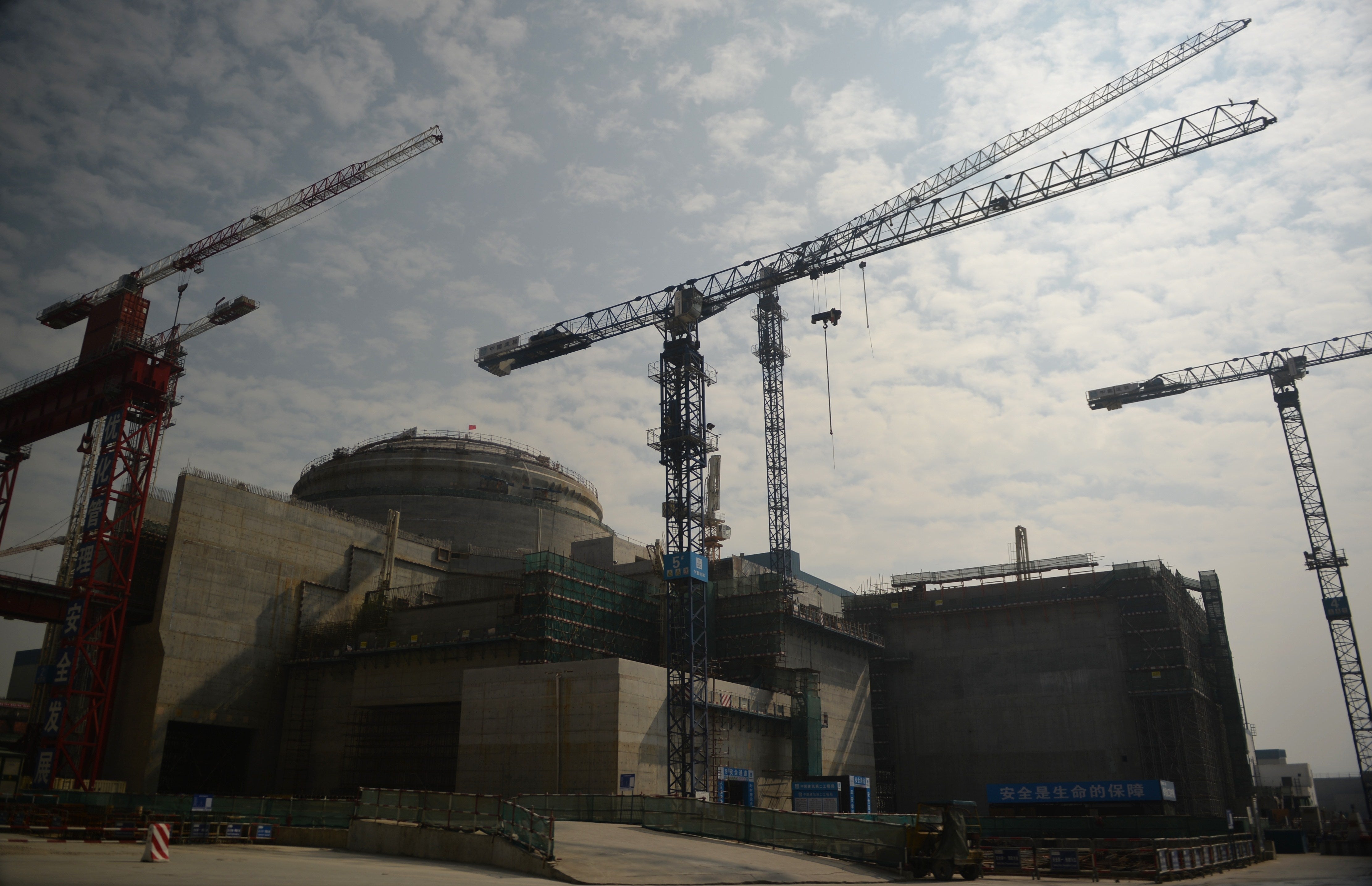China insists radiation levels are normal at Guangdong nuclear plant amid leak reports
Experts say a leak incident might be complicated if Taishan plant uses US technology that is covered by export restrictions

Your support helps us to tell the story
From reproductive rights to climate change to Big Tech, The Independent is on the ground when the story is developing. Whether it's investigating the financials of Elon Musk's pro-Trump PAC or producing our latest documentary, 'The A Word', which shines a light on the American women fighting for reproductive rights, we know how important it is to parse out the facts from the messaging.
At such a critical moment in US history, we need reporters on the ground. Your donation allows us to keep sending journalists to speak to both sides of the story.
The Independent is trusted by Americans across the entire political spectrum. And unlike many other quality news outlets, we choose not to lock Americans out of our reporting and analysis with paywalls. We believe quality journalism should be available to everyone, paid for by those who can afford it.
Your support makes all the difference.China has denied any safety concerns relating to the Taishan nuclear power plant stating that no abnormal radiation was detected in it, after the French operator reported a gas build-up.
A foreign ministry spokesman in Beijing, Zhao Lijian, responded to reporters’ questions by saying: “there is nothing abnormal detected in the radiation level surrounding the plant.” He gave no confirmation of a leak or other details.
Hong Kong, which is closer to Guangdong province, has also expressed concern after the reports on Tuesday, however, the data from the Hong Kong Observatory and other departments showed that as of Monday night the radiation levels in the city were normal.
The chief executive of Hong Kong, Carrie Lam, said her government would ask authorities in Guangdong for information and tell the public about any developments.
Framatome, a French company that helps manage the Taishan Nuclear Power Plant, raised an alarm on Monday saying that the plant was dealing with a “performance issue”, but that it was operating within safety parameters. The company statement followed media reports that the plant could be experiencing a leak.
A CNN report quoting sources claimed that the US government was assessing the risk factors of the Taishan nuclear power plant, based in the populous region of Guangdong province. It said that Framatome told US authorities about a possible leak and also warned that the Chinese safety authority was raising the acceptable limits for radiation detection outside the plant to prevent it from being shut down.
However, the Biden administration reportedly concluded that the situation at the plant isn’t yet at “crisis level” and does not pose an immediate danger to the workers in the plant or the people around it. However, concerns regarding a potential leak are still worrying experts.
The statement from the French company said it was informed of the increase in the concentration of “certain rare gases” in one of the reactors at Taishan.
Luk Bing-lam, an expert on nuclear engineering at the City University of Hong Kong told the Associated Press, that this suggests the fuel rods are leaking noble gases, a byproduct of nuclear fission.
“If the leakage is more severe, then you will start seeing more radioactive material like caesium, rather than gas,” said Mr Luk, who is also the chairman of the Hong Kong Nuclear Society.
He also said such leaks “happen every so often” in China and plants “usually can handle it themselves” but he said this incident might be complicated if the Taishan plant uses US technology that is covered by export restrictions.
Previously, the Taishan facility leaked a “small amount” of radioactive gas on 9 April, the National Nuclear Safety Administration said on its website, AP reported. It said the event was “Level 0,” or “without safety significance.”
The Taishan plant became operational in 2018 and is jointly owned by China Guangdong Nuclear Power Group and Electricite de France (EDF), the majority owner of Framatome. The two reactors in the plant are the first of a new type called European Pressurized Reactors.
Additional reporting by agencies
Join our commenting forum
Join thought-provoking conversations, follow other Independent readers and see their replies
Comments